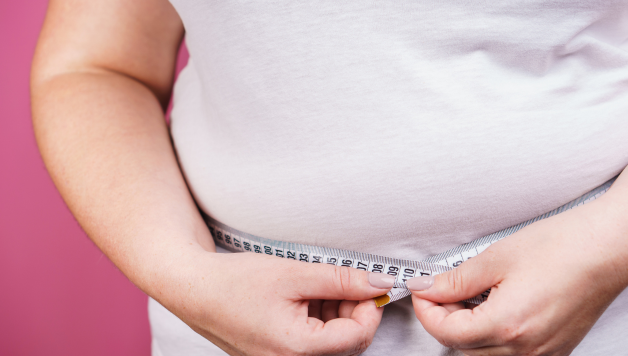Key Takeaways:
- Prioritize a nutritious diet with fruits, veggies, and whole grains.
- Minimize processed foods and sugary snacks for weight loss success.
- Commit to regular cardio and strength training exercises for fitness.
- Manage stress through relaxation techniques like deep breathing or meditation.
- Remember that sustainable weight loss requires consistency, patience, and self-care.
Menopause and Weight Loss
Are you going through menopause and struggling to lose weight? Don’t worry! In this article, we will discuss practical tips and strategies to enhance your weight loss goals during this transitional phase, empowering you to achieve a healthier lifestyle. Menopause can bring about hormonal changes that may make it more challenging to shed pounds, but it is possible to achieve a healthier weight with the right approach. Read on to discover effective ways to lose weight during menopause.
Understanding Menopause and Weight Gain:
Menopause, a natural process that occurs in women, marks the end of their menstrual cycles. During this stage, hormonal fluctuations can lead to various symptoms, including weight gain. The decrease in estrogen levels often results in a shift in fat distribution, with more weight accumulating around the abdomen. Additionally, menopause can slow down the metabolism. As a result, it becomes easier to gain weight and harder to lose it.
Lose Weight During Menopause: Effective Ways for Women to Shed Pounds
Here are some effective strategies specifically tailored for women to shed pounds and achieve a healthier body during this transformative stage of life.
Lose Weight Slowly and Steadily:
When aiming to lose weight during menopause, focusing on gradual and sustainable progress is essential.
- Rapid weight loss methods may not be suitable and can adversely affect your health.
- Instead, aim to lose weight at a rate of 1-2 pounds per week.
This slow and steady approach promotes long-term success and minimises the risk of regaining weight.
Make Healthy Eating Choices:
Eating a balanced and nutritious diet is important for weight loss during menopause.
- Opt for whole foods such as fruits and vegetables.
- Further, you can also include lean proteins, whole grains, and healthy fats in your diet. These nutrient-dense foods provide essential vitamins, minerals, and fibre while satisfying you.
- Avoid or limit processed foods, sugary snacks, and beverages high in added sugars, as they can contribute to weight gain.
Control Portion Sizes:
Watch your portion sizes to manage calorie intake effectively.
- Use smaller plates and bowls to visually trick your mind into thinking you’re consuming more food.
- Balance your plate by dedicating half to vegetables, one-fourth to lean protein, and another one-fourth to whole grains or starchy vegetables.
This balanced approach ensures you get various nutrients while controlling your calorie intake.
Stay Hydrated:
Adequate water intake is crucial for both weight loss and maintaining overall health.
- Set a target of consuming a minimum of 8 cups of water daily.
- To make it more enjoyable, infuse your water with slices of fruits or herbs to add a refreshing and flavorful twist.
Water keeps you hydrated, helps control appetite, and supports your body’s metabolic functions.
Incorporate Regular Physical Activity:
Regular exercise is vital for weight loss, especially during menopause.
- Engage in activities that get your heart rate up and help burn calories.
- Choose exercises you enjoy, such as brisk walking, swimming, dancing, or cycling.
- Strive to engage in moderate-intensity aerobic activity for at least 150 minutes per week.
- Incorporate strength training exercises twice weekly to preserve muscle mass.
Manage Stress:
Stress can contribute to weight gain, particularly during menopause. Discover healthy methods to cope with stress by incorporating relaxation techniques such as:
- Meditation,
- Deep breathing exercises, or
- Participating in enjoyable hobbies.
Adequate sleep is also crucial for managing stress levels and supporting overall well-being.
Get Support:
Losing weight can be challenging, and having a support system can make a significant difference.
- Seek support from family, friends, or join a weight loss group to stay motivated and accountable.
- Surrounding yourself with like-minded individuals can provide encouragement and helpful tips throughout your weight loss journey.
Losing weight during menopause may require some adjustments, but with the right strategies, it is entirely possible. Focus on healthy eating choices, controlling portion sizes, staying hydrated, engaging in regular physical activity, managing stress, and seeking support. Remember, losing weight gradually and sustainably is the key to long-term success. Embrace these lifestyle changes, and you’ll be on your way to achieving a healthier weight during menopause.









